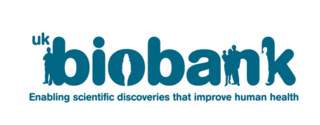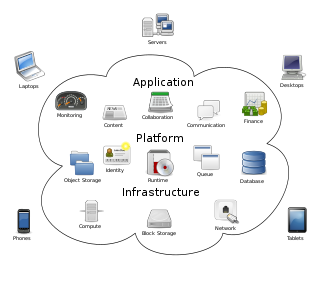
In computing, a database is an organized collection of data or a type of data store based on the use of a database management system (DBMS), the software that interacts with end users, applications, and the database itself to capture and analyze the data. The DBMS additionally encompasses the core facilities provided to administer the database. The sum total of the database, the DBMS and the associated applications can be referred to as a database system. Often the term "database" is also used loosely to refer to any of the DBMS, the database system or an application associated with the database.

Microsoft Access is a database management system (DBMS) from Microsoft that combines the relational Access Database Engine (ACE) with a graphical user interface and software-development tools. It is a member of the Microsoft 365 suite of applications, included in the Professional and higher editions or sold separately.

Network-attached storage (NAS) is a file-level computer data storage server connected to a computer network providing data access to a heterogeneous group of clients. The term "NAS" can refer to both the technology and systems involved, or a specialized device built for such functionality.

UK Biobank is a large long-term biobank study in the United Kingdom (UK) which is investigating the respective contributions of genetic predisposition and environmental exposure to the development of disease. It began in 2006.
The cancer Biomedical Informatics Grid (caBIG) was a US government program to develop an open-source, open access information network called caGrid for secure data exchange on cancer research. The initiative was developed by the National Cancer Institute and was maintained by the Center for Biomedical Informatics and Information Technology (CBIIT) and program managed by Booz Allen Hamilton. In 2011 a report on caBIG raised significant questions about effectiveness and oversight, and its budget and scope were significantly trimmed. In May 2012, the National Cancer Informatics Program (NCIP) was created as caBIG's successor program.

Genetic Alliance is a nonprofit organization, founded in 1986 by Joan O. Weiss, working with Victor A. McKusick, to advocate for health benefits in the accelerating field of genomic research. This organization is a network of over 1,000 disease advocacy organizations, universities, government organizations, private companies, and public policy organizations. They aim to advance genetic research agendas toward health benefit by engaging a broad range of stakeholders, including healthcare providers, researchers, industry professionals, public policy leaders, as well as individuals, families and communities. They create programs using a collaborative approach, and aim to increase efficiency and reduce obstacles in genetic research, while ensuring that voices from the involved disease communities are heard. They also promote public policies to advance healthcare. Genetic Alliance provides technical support and informational resources to guide disease-specific advocacy organizations in being their own research advocates. They also maintain a biobank as a central storage facility for several organizations who otherwise would not have the infrastructure to maintain their own repository.
A government database collects information for various reasons, including climate monitoring, securities law compliance, geological surveys, patent applications and grants, surveillance, national security, border control, law enforcement, public health, voter registration, vehicle registration, social security, and statistics.

A biobank is a type of biorepository that stores biological samples for use in research. Biobanks have become an important resource in medical research, supporting many types of contemporary research like genomics and personalized medicine.

Cloud computing is the on-demand availability of computer system resources, especially data storage and computing power, without direct active management by the user. Large clouds often have functions distributed over multiple locations, each of which is a data center. Cloud computing relies on sharing of resources to achieve coherence and typically uses a pay-as-you-go model, which can help in reducing capital expenses but may also lead to unexpected operating expenses for users.
A biorepository is a facility that collects, catalogs, and stores samples of biological material for laboratory research. Biorepositories collect and manage specimens from animals, plants, and other living organisms. Biorepositories store many different types of specimens, including samples of blood, urine, tissue, cells, DNA, RNA, and proteins. If the samples are from people, they may be stored with medical information along with written consent to use the samples in laboratory studies.

Microsoft Azure, often referred to as Azure, is a cloud computing platform run by Microsoft. It offers access, management, and the development of applications and services through global data centers. It also provides a range of capabilities, including software as a service (SaaS), platform as a service (PaaS), and infrastructure as a service (IaaS). Microsoft Azure supports many programming languages, tools, and frameworks, including Microsoft-specific and third-party software and systems.

P3G (Public Population Project in Genomicsand Society) is a not-for-profit international consortium dedicated to facilitating collaboration between researchers and biobanks working in the area of human population genomics. P3G is member-based and composed of experts from the different disciplines in the areas of and related to genomics, including epidemiology, law, ethics, technology, biomolecular science, etc. P3G and its members are committed to a philosophy of information sharing with the goal of supporting researchers working in areas that will improve the health of people around the world.
Data virtualization is an approach to data management that allows an application to retrieve and manipulate data without requiring technical details about the data, such as how it is formatted at source, or where it is physically located, and can provide a single customer view of the overall data.

A biological specimen is a biological laboratory specimen held by a biorepository for research. Such a specimen would be taken by sampling so as to be representative of any other specimen taken from the source of the specimen. When biological specimens are stored, ideally they remain equivalent to freshly-collected specimens for the purposes of research.
Biobank ethics refers to the ethics pertaining to all aspects of biobanks. The issues examined in the field of biobank ethics are special cases of clinical research ethics.
The National Database for Autism Research (NDAR) is a secure research data repository promoting scientific data sharing and collaboration among autism spectrum disorder (ASD) investigators. The project was launched in 2006 as a joint effort between five institutes and centers at the National Institutes of Health (NIH): the National Institute of Mental Health (NIMH), the National Institute of Child Health and Human Development (NICHD), the National Institute of Neurological Disorders and Stroke (NINDS), the National Institute of Environmental Health Sciences (NIEHS), and the Center for Information Technology (CIT). The goal of NDAR is to provide a shared common platform for data collection, retrieval, and archiving to accelerate the advancement of research on autism spectrum disorders. The largest repository of its kind, NDAR makes available data at all levels of biological and behavioral organization for all data types. As of November 2013, data from over 90,000 research participants are available to qualified investigators through the NDAR portal. Summary information about the available data is accessible through the NDAR public website.
PATH Biobank is a German biobank for breast cancer, established in 2002 from patients for patients. PATH is an independent non-profit foundation with the purpose of supporting breast cancer research with high quality tumor tissue. In order to achieve this goal, PATH operates sample storage tanks with liquid nitrogen at seven German breast centers. Tumor tissue and blood serum from breast cancer patients are stored in these tanks. More than 7200 women have consented to the storage of their tissue since 2004. A centralized database complements the biobank with important patient information. PATH is a joint venture of clinicians, scientists and patients. Via sample collection for cancer research, these partners aim to close the gap between basic science and fast implementation in the clinical practice.
Lungscape is a translational research program designed, implemented and conducted by the European Thoracic Oncology Platform (ETOP) in collaboration with a series of leading hospitals and clinics across Europe and beyond.
DNA encryption is the process of hiding or perplexing genetic information by a computational method in order to improve genetic privacy in DNA sequencing processes. The human genome is complex and long, but it is very possible to interpret important, and identifying, information from smaller variabilities, rather than reading the entire genome. A whole human genome is a string of 3.2 billion base paired nucleotides, the building blocks of life, but between individuals the genetic variation differs only by 0.5%, an important 0.5% that accounts for all of human diversity, the pathology of different diseases, and ancestral story. Emerging strategies incorporate different methods, such as randomization algorithms and cryptographic approaches, to de-identify the genetic sequence from the individual, and fundamentally, isolate only the necessary information while protecting the rest of the genome from unnecessary inquiry. The priority now is to ascertain which methods are robust, and how policy should ensure the ongoing protection of genetic privacy.

The FinnGen project was launched in 2017 with the aim of collecting biological samples from 500,000 participants in Finland over six years with the aim of improving health through genetic research. This is about 10% of the population. It is hoped that it will be a springboard for better diagnostics and new therapies. It is the key to Finland's Health Sector Growth Strategy for Research and Innovation Activities.









